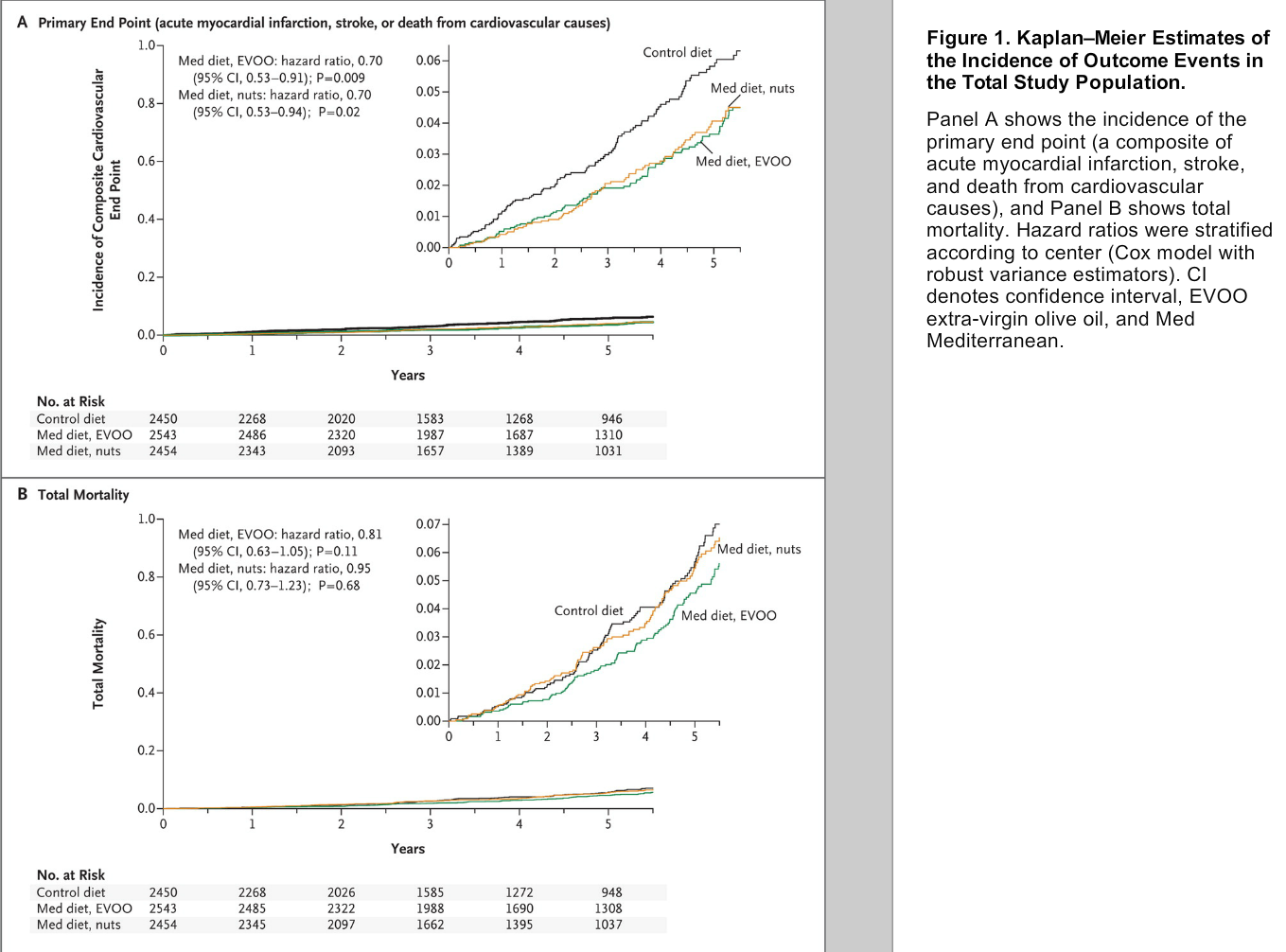Did I miss the discussion of this study?
BACKGROUND:
Observational cohort studies and a secondary prevention trial have shown an inverse association between adherence to the Mediterranean diet and cardiovascular risk. We conducted a randomized trial of this diet pattern for the primary prevention of cardiovascular events.
METHODS:
In a multicenter trial in Spain, we randomly assigned participants who were at high cardiovascular risk, but with no cardiovascular disease at enrollment, to one of three diets: a Mediterranean diet supplemented with extra-virgin olive oil, a Mediterranean diet supplemented with mixed nuts, or a control diet (advice to reduce dietary fat). Participants received quarterly individual and group educational sessions and, depending on group assignment, free provision of extra-virgin olive oil, mixed nuts, or small nonfood gifts. The primary end point was the rate of major cardiovascular events (myocardial infarction, stroke, or death from cardiovascular causes). On the basis of the results of an interim analysis, the trial was stopped after a median follow-up of 4.8 years.
RESULTS:
A total of 7447 persons were enrolled (age range, 55 to 80 years); 57% were women. The two Mediterranean-diet groups had good adherence to the intervention, according to self-reported intake and biomarker analyses. A primary end-point event occurred in 288 participants. The multivariable-adjusted hazard ratios were 0.70 (95% confidence interval [CI], 0.54 to 0.92) and 0.72 (95% CI, 0.54 to 0.96) for the group assigned to a Mediterranean diet with extra-virgin olive oil (96 events) and the group assigned to a Mediterranean diet with nuts (83 events), respectively, versus the control group (109 events). No diet-related adverse effects were reported.
CONCLUSIONS:
Among persons at high cardiovascular risk, a Mediterranean diet supplemented with extra-virgin olive oil or nuts reduced the incidence of major cardiovascular events. (Funded by the Spanish government's Instituto de Salud Carlos III and others; Controlled-Trials.com number, ISRCTN35739639.).
(1) Estruch R, Ros E, Salas-Salvadó J, et al. Primary prevention of cardiovascular disease with a Mediterranean diet. N Engl J Med 2013; DOI: 10.1056/NEJMoa200303.
http://www.nejm.org/...6/NEJMoa1200303
I am working on a Question & Answer section for my blog. You can ask me anything, but please provide concise questions if you would like me to write an explanation.




























































